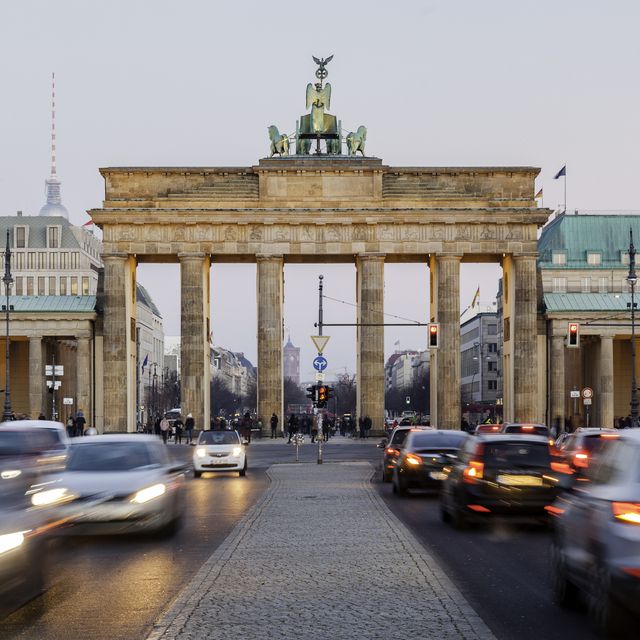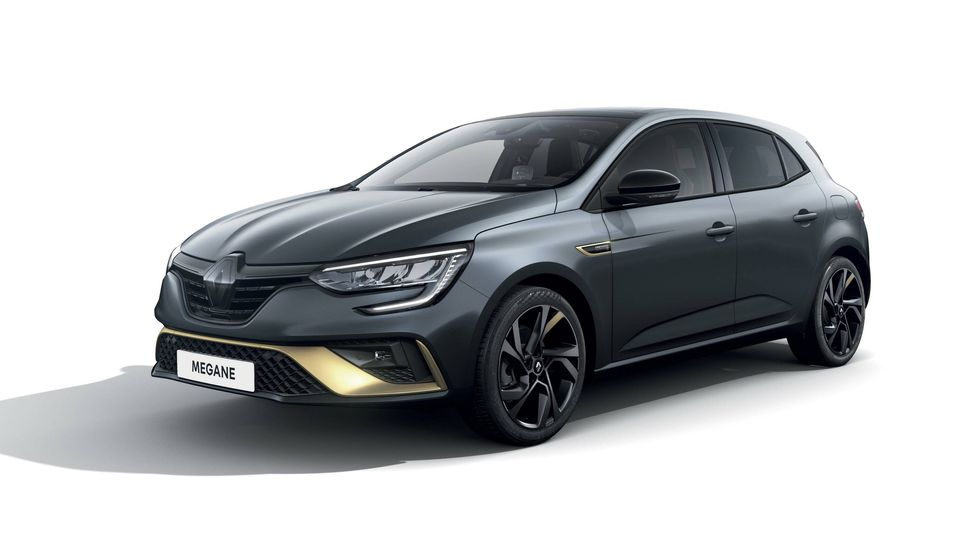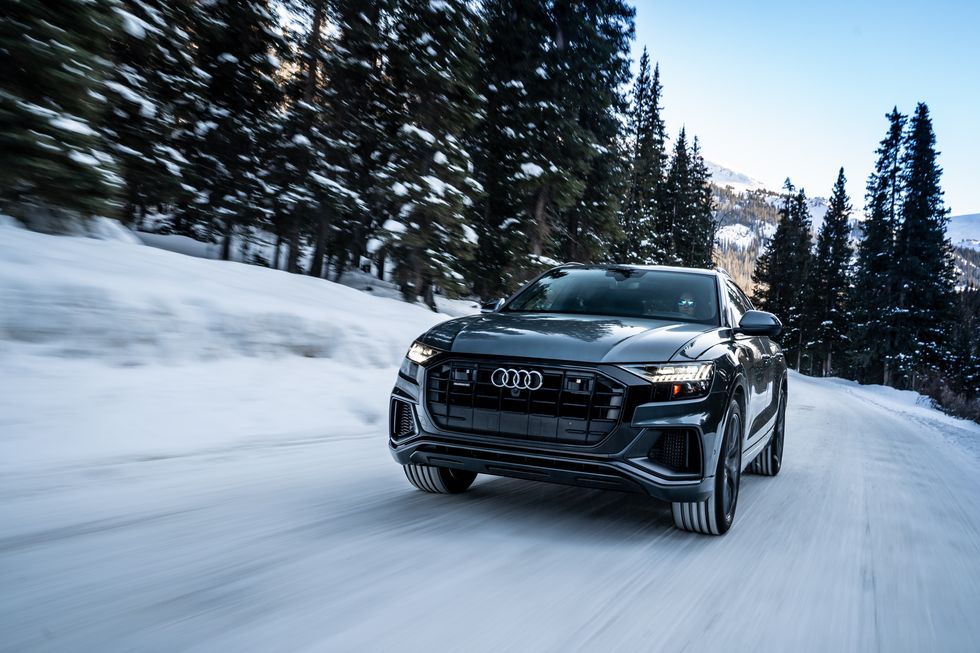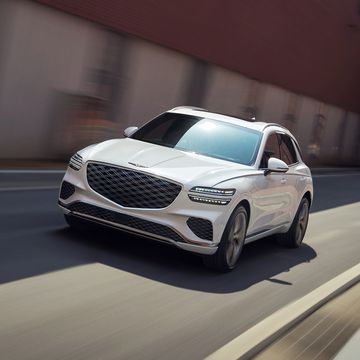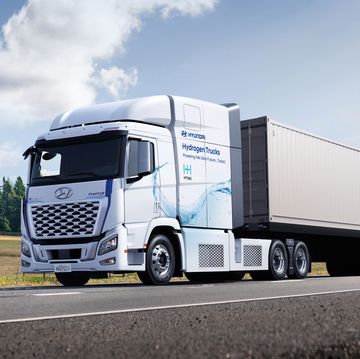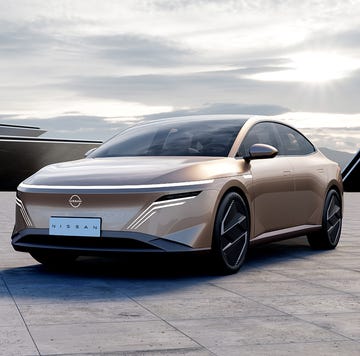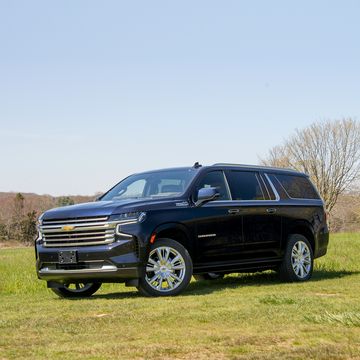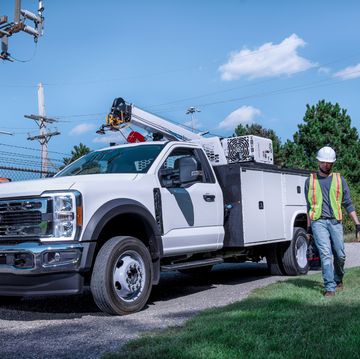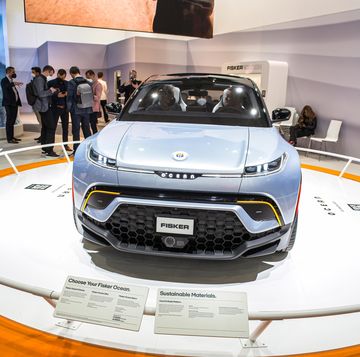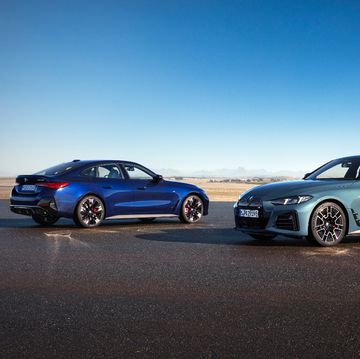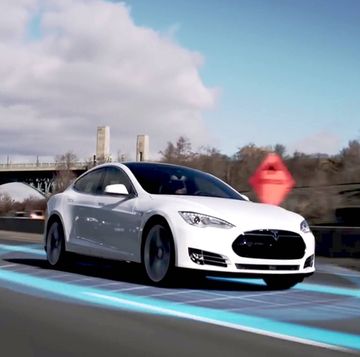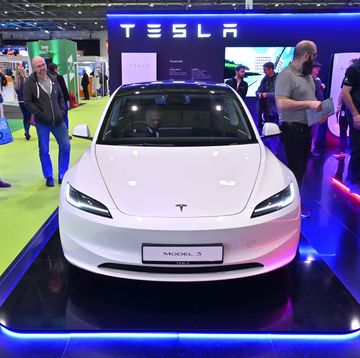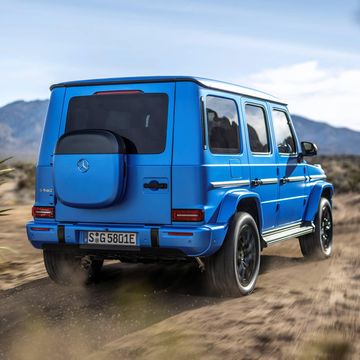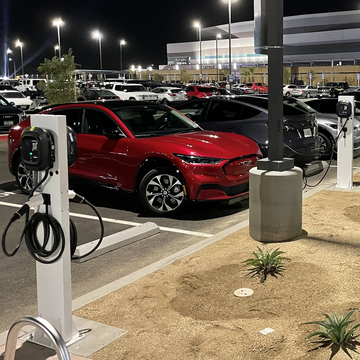- The 2035 ban on the sale of internal-combustion vehicles in Europe is still in effect, despite an exception made for e-fuels, a move pushed by Germany.
- Environmentalists would like to see the date for the ban to be sooner but understands there is little support for such a change.
- Some automakers are lobbying to make hybrids with at least 50 miles of electric-only range also exempt.
Support for the European Union plan to ban internal-combustion cars in 2035 appears to be holding, even though Germany led a successful effort to weaken the legislation by allowing synthetic “e-fuel,” and now independent England has pulled back on its own ban—moving it up from 2030 to 2035. But that could change.
Greenpeace would actually like to see the EU ban moved up, to 2028. But the group’s EU transport campaigner, Lorelei Limousin, says, “We are not currently seeing momentum to delay the phase-out of combustion-engine cars in the European Union. The legislation was approved by a large majority of governments—only Poland voted against, while three abstained: Italy, Romania and Bulgaria. Any postponement of the 2035 date would only make drivers dependent on polluting oil for longer.”
U.S, environmentalists agree. Paul Scott, co-founder of the Plug In America advocacy group, told Autoweek, “The EU would be making a grave mistake by delaying its 2035 internal-combustion ban by even one month, putting at risk the welfare and future of its citizens.”
The legislation was nearly approved earlier this year when Germany delayed the proceedings by insisting on the e-fuel loophole. Germany was soon joined by Italy, Poland, and the Czech Republic in pushing for the exception. German automaker Porsche, part of the VW Group, is a 12.5 percent owner of HIF Global, which makes carbon-neutral gasoline from captured carbon dioxide and renewably generated hydrogen.
Last year, a dissident bloc of Italy, Portugal, Slovakia, Bulgaria and Romania called for further relaxation of the rules, to a 90 percent cut in vehicle carbon dioxide in 2035, and a total ban on internal combustion five years later, in 2040.
Italy’s far-right infrastructure and transport minister, Matteo Salvini, was particularly vociferous about it, saying that the ban “makes no economic, environmental or social sense.” He said the plan was “suicide” and “a gift” to Chinese auto industry.
Salvini said that tens of thousands of auto workers would be left unemployed by the ban, and Slovakia’s opposition may be similar, based on concern about the future of the country’s four (soon to be five) auto plants.
Slovakia hosts four (soon to be five with Volvo) auto plants, and their fate is critically important to the country’s economy. Michal Wiezik, a member of the European Parliament from Slovakia since 2019, said via email that the country was always in favor of a ban, calling it “a significant milestone for the climate, but, let us be honest, a demanding target for Slovakia to achieve.”
He added, “Slovakia, of course, originally took a more cautious stance, due to the high production of cars per capita, but in the end it supported the common position, approved by the government. I pushed for the ban to include a plan and funding for the widespread reskilling of employees, and I am pleased that the final proposal reflects this requirement. It is important for Slovakia that the transition to electromobility is not only green, but also economically fair.”
In 2021, the France-based automaker Renault also backed a 2040 deadline for an end to the tailpipe. One of the company’s concerns was that the ban (unlike California’s) takes plug-in hybrid cars off the table.
“We will fight to propose a smoother way of doing things, to have a proportion of hybrid until I would say 2040,” said Gilles Leborgne, the company’s vice president for engineering.
Representing the Strong Plug-In Hybrid Coalition, Tom Bradley, head of the department of systems engineering at Colorado State University in Fort Collins, agrees with that Renault position, though with a closer deadline. He told Autoweek that “an alternative solution would be for the EU to allow plug-in hybrids with 50 or 60 miles of all-electric range to qualify and keep the 2035 date, which is the approach California took last year.”
Renault was advocating delays two years ago, but last year Renault Chief Financial Officer Thierry Piéton seemed to still be having big doubts about banning IC vehicles. “In our view, and according to all the studies that we’ve got, there is no scenario where ICE and hybrid engines represent less than 40 percent of the market with a horizon of 2040,” he said. Renault did not respond to messages.
Around the same time, Carlos Tavares, CEO of Stellantis, said it was “clear that the decision to ban pure ICEs is a purely dogmatic decision.” He said European leaders should be “more pragmatic and less dogmatic.”
Asked about its stance today, Stellantis said it has “no comment” on the ban, but added that it is “investing more than €50 billion ($53 billion) over the next decade in electrification,” with the intent to offer 100 percent battery electric passenger car sales in Europe by 2030. Its U.S. goals are more modest, 50 percent passenger car and light duty truck battery electric sales by 2030.
Although a poll by German broadcaster ARD last March showed 67 percent of Germans are against the internal-combustion ban, German automakers appear supportive now.
According to a Mercedes-Benz spokesman via email, “We welcome the final adoption of CO2 legislation in the EU, as it represents an important step for the transport sector on the road to climate neutrality….In our view, the decisive factor is not the prohibition of traditional technologies, but that people accept new technologies.”
The company said its goal is to be “fully electric by the end of the decade wherever market conditions allow. Our strategic decision is clear: We are gradually aligning our portfolio to electric mobility.”
The Volkswagen Group, victorious on the e-fuel loophole and also pivoting to electric, supports the law.
Esra Aydin, a spokesperson for sustainability and corporate social responsibility at the VW Group, said via email, “In 2026, the Volkswagen Group plans to present a new platform for vehicles with combustion engines for the last time. In 2033, Volkswagen brand and Audi plan to sell the last vehicle with an internal-combustion engine in Europe. That is why we also support the European Union’s decision to ban internal-combustion engines by 2035.”
Indeed, most automakers are fully involved in the same expensive transition, which makes them more likely to support an EU ban. Italian companies are electrifying, but not in quite as much of a hurry as other automakers.
In September, conservative British Prime Minister Rishi Sunak pushed back the country’s 2030 commitment to banning internal-combustion engines to 2035, in line with Europe. “To give us more time to prepare, we’re going to ease the transition to electric vehicles,” he said. “You’ll still be able to buy a combustion-engined vehicle until 2035.”
Though the action probably wasn’t surprising, the reaction to it was perhaps more negative than anticipated. Lisa Brankin, chair of Ford UK, said before the prime minister’s announcement, “Our business needs three things from the UK government: ambition, commitment and consistency. A relaxation of 2030 would undermine all three.”
Andy Palmer, former CEO of Aston Martin and a battery advocate, also sees inconsistency and uncertainty as problems. The government’s announcement, he said, “will have spooked a number of car manufacturers who are looking at the UK as a potential destination for their investment.”
Dr. Simon Mui, director of the clean vehicles and fuels group at the Natural Resources Defense Council’s climate and clean energy program, is another advocate for consistency.
“Governments that provide ambition, commitment and consistency on the transition to electric vehicles are reaping more industry investments, reduced transportation costs and improved public health,” he told Autoweek. “Jurisdictions that simply delay will find themselves falling behind competitively.”
The Labour Party currently has a wide, 20-point lead over the Conservatives in the general election that must occur by January 1, 2025. If Labour wins, the ban could well move back to 2030.
The Labour Party’s shadow environmental minister, Steve Reed, said that “businesses have been investing for” the 2030 deadline. Reed told Sky News, “Sunak is stuck in the past here. He wants to keep household bills high, and he wants to stop the investment for the new jobs that would pay the good, secure wages of the future.”
Efforts to weaken or delay the internal-combustion engine bans could ramp up as the deadlines get closer and the reality of no longer having gas and diesel vehicles in the portfolios sinks in. But the huge investment in EVs being made virtually across the automotive spectrum militates against overt repeal.
What are the chances the EU will stick with its 2035 deadline banning the sale of ICE-powered vehicles? Share your thoughts in the comments below.
Jim Motavalli is an auto writer and author (nine books) who contributes to Autoweek and Barron’s Penta. He has written two books on electric cars, Forward Drive (2000) and High Voltage (2010), and hosts the Plugging In podcast.
Motavalli’s writing has appeared in the New York Times, CBS Moneywatch, Car Talk at NPR, Forbes, US News and World Report, Sierra Magazine, Audubon, and many more. In his spare time, he reviews books and jazz.
